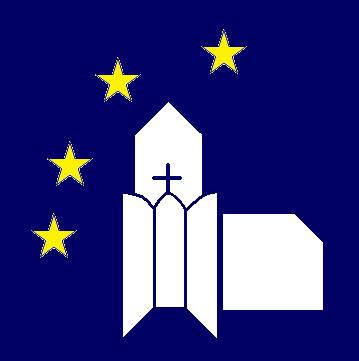by Simon Bryden-Brook
We are all familiar with the fact that religion appears at times to conflict with human rights. It seems wrong that churches may not be built in Saudi Arabia. It seems wrong that religion is used as an excuse for female genital mutilation by some cultures. But is it wrong that little boys should have their genitals mutilated in the name of religion with no medical reason? One German court certainly thought so. Is it wrong that religions should be allowed to set up their own courts (under the pretext of it being 'mediation' implicitly consented to by the parties) which may result in decisions being reached without the accused being given details of the accusations or the accuser or sentences being imposed which result in limbs being amputated?
There is another side to the coin too. If religions should be made to uphold human rights, then should they not also remain aloof from the political process? Many Arab states are keen to insist that once a fundamentalist Arab government is in power, then the political process must be subservient to religious requirements. The Roman Catholic Church until recently detested the idea of the separation of church and state and in countries like Spain, sought to impose its views on Protestants, Jews and other unbelievers. I can see no objection to a pope addressing the United Nations. They can listen politely and decide whether he has said anything constructive, but I do not want to live in a society where the political processes are governed by secret meetings between bishops and their representatives and politicians any more that one governed by an Ayatollah.
These points were brought home to me when at the Conference of INGOs at the Council of Europe considered a paper which had been three years in the making on 'Human Rights and Religions'. In RENEW 163 (June 2012) I described my attendance at the Council of Europe last June. Readers may be interested to hear of my conclusions after a second visit this January.
The paper in question contained a series of recommendations which it was hoped would be approved by the Conference of INGOs and passed to the Council of Europe for its consideration. The recommendations are based on a 140 page report produced by a working party led by Professor François Becker of the European Network Church on the Move, to which CCC belongs. They seemed incontrovertible to the majority of delegates present but they were mysteriously sidelined after procedural manoeuvring by those entrusted with the management of the conference.
The European Network, and those in the Conference of INGOs who believe the place of religion in the matter of human rights is one which must be faced, will not relent. We are determined to see that the matter is brought up again at the June 2013 conference. Some people in the UK appear to believe that human rights should not apply to everyone (such as immigrants) and there are people in European institutions who would like to exempt religions too.
At the conference I found myself surrounded by some two hundred delegates representing INGOs in such diverse fields as law, education, relief of poverty, youth, women, communications, health, environment and housing to name but a few. Presentations were made about new Russian laws designed to label INGOs operating in Russia as 'foreign agents' and subject them to controls, about failures by some member countries to ban torture and degrading punishment (France being a major violator), about violence against the elderly, climate change, extreme poverty and living together in diversity. In all these areas of human activity your delegates seek to discern what the demands of the Gospel are and to present them to others. In fact, making common cause with such people of good will is easy and one feels at home among them. Where would Jesus stand on these issues? “I was hungry, homeless, sick and in prison and you did not recognise me!” One can see why so many people find religion oppressive and threatening to their rights and we aim to be a different Christian and Catholic voice at the Council of Europe.
